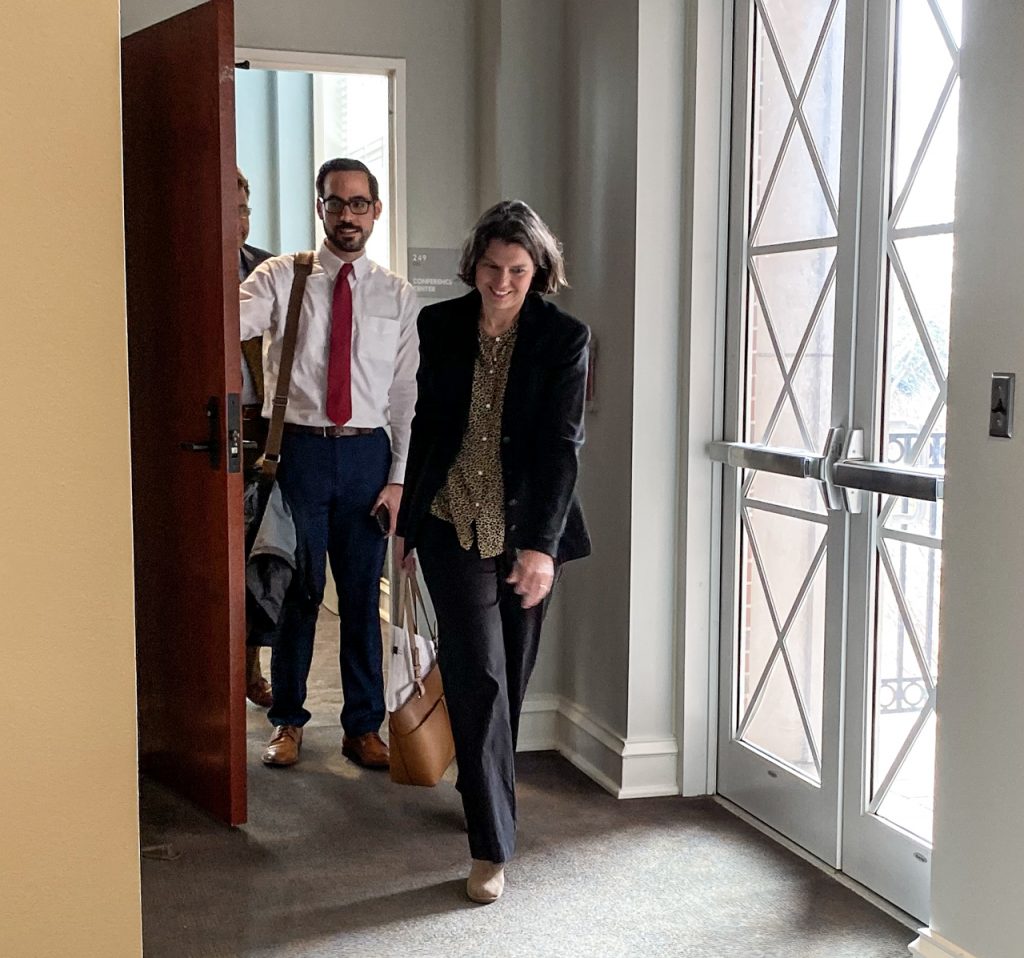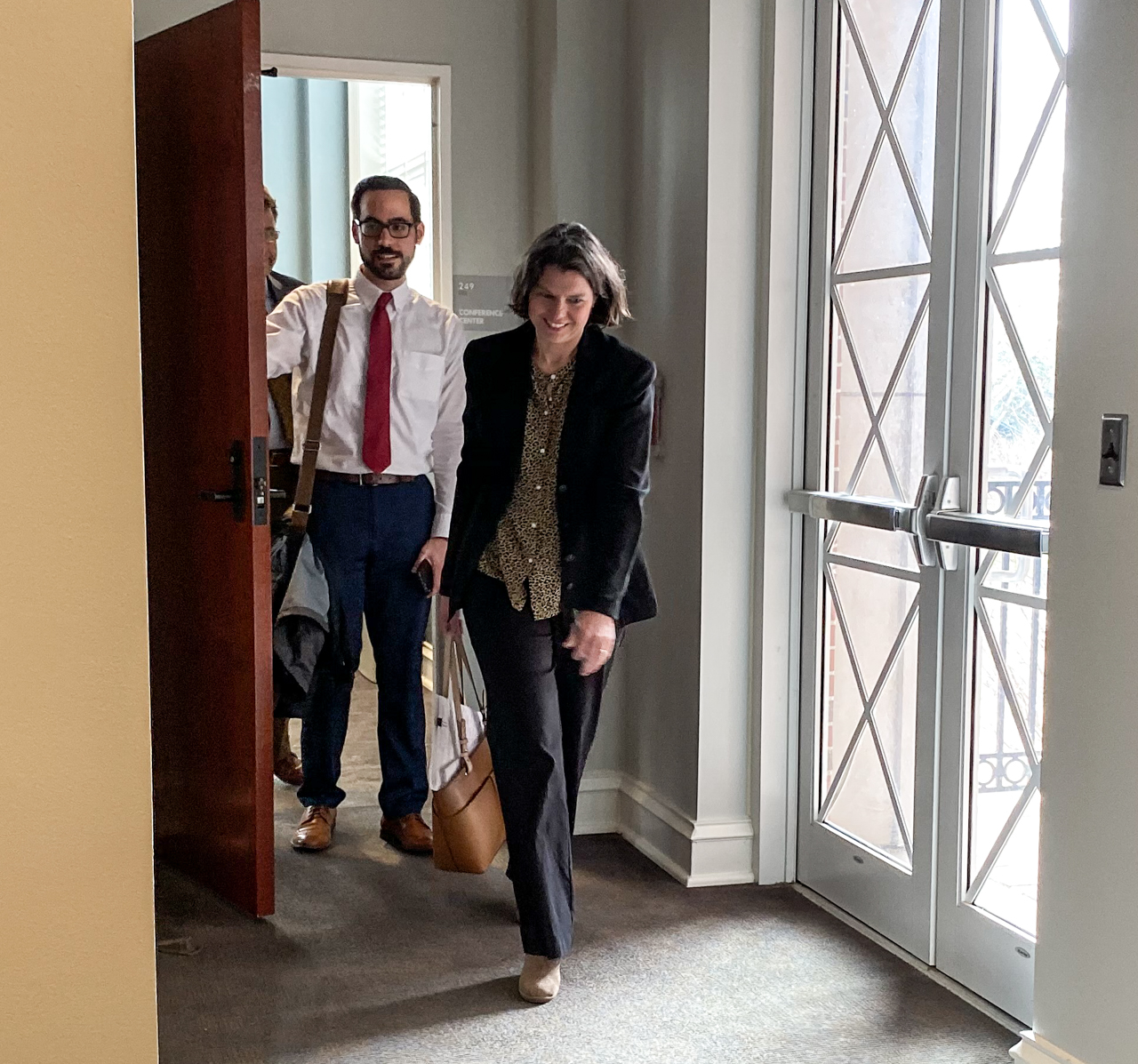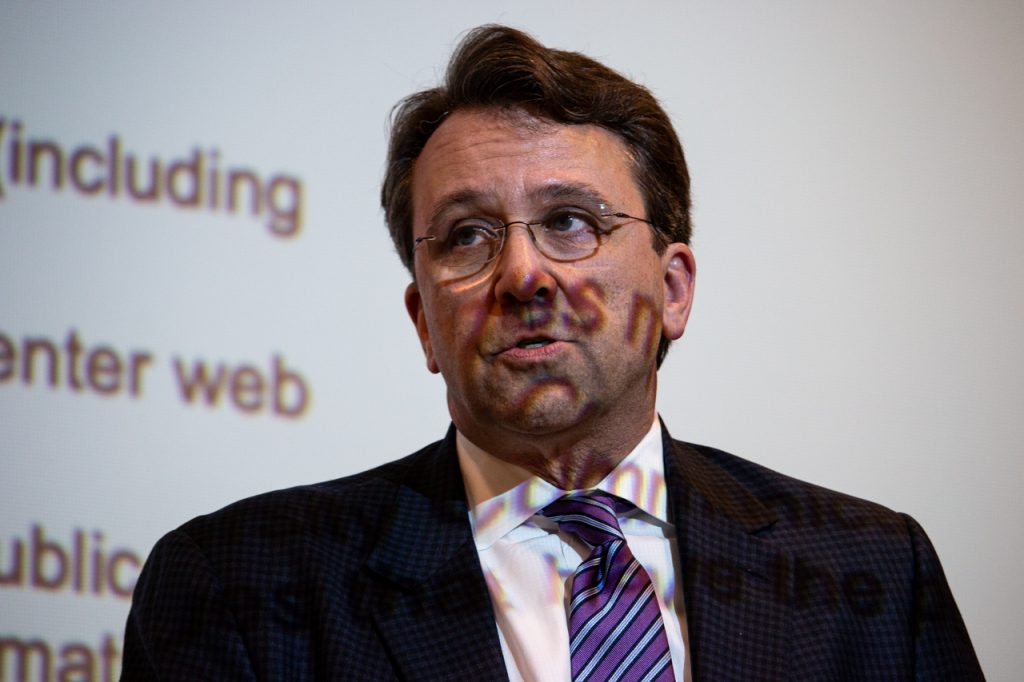
University faculty and staff held a meeting in the Overby Center on Monday afternoon to discuss the draft of communication policy changes with University Marketing and Communications (UM&C) officials.
One associate journalism professor who was present, Kristy Swain, said the meeting made clear that “anyone running afoul of the policy could face disciplinary sanctions for doing so.”
No changes were made in the proposed policies after the Monday afternoon meeting.
Most attendees were faculty from the journalism school, but there were also representatives from the biology department, provost’s office and university Ombuds, along with other areas of campus.
Shortly before the meeting began, Cynthia Joyce, associate professor of journalism, asked the members of the meeting if anyone had a problem with asking a Daily Mississippian reporter to leave the room.
Joyce said that some people in the meeting might not feel comfortable about making comments with reporters in the room.
“We haven’t really gotten to have this conversation yet,” Joyce said.
None of the other members in the meeting objected, and the reporter was asked to leave. After the meeting, Swain said she knew of three people who did not want the reporter removed.
Zook said that because he agreed to keep the meeting confidential, he would not comment on it.
According to Swain, the meeting was closed to reporters after the reporter was asked to leave, but the group never agreed to keep it confidential.
Swain said that most members of the meeting wanted clarification on the language used in the policy, but UM&C officials were vague in their responses.
“One administrator told us that any policy violation could become a personnel issue, and disciplinary action would depend on the circumstance and the discretion of the person’s boss.”
Swain said that one faculty member in the meeting told UM&C that the draft policy seems “punitive and antagonistic,” and that the policy conveys that they, as faculty members, are not trusted to tell the story of the university.
“My colleagues felt the UM&C representatives at the meeting were defensive, unwilling to engage in concrete dialogue and intent on trying to persuade us that the policy means something other than (what its) plain language indicates that it means,” Swain said.
Before Tuesday night’s Faculty Senate meeting, UM&C gave members of the Faculty Senate executive board the ability to submit their feedback on a draft of the new media relations policy. Individual members of the executive board made the initial comments, and then the committee agreed on them.
The draft policy says that university faculty and staff should notify UM&C when they are contacted by members of the media so that a UM&C representative can respond to the request. The policy says a UM&C representative or person designated by UM&C should accompany reporters while on university property.
The Faculty Senate asked how they could notify UM&C in these instances and if this rule applied to all interactions with media, including interactions in their professional roles.
UM&C added language to clarify that faculty and staff should notify them as soon as possible after being contacted by a media member and should send them an email if a member of the media arrives unannounced.
“Some professors conveyed that many people across campus already refuse to talk to student journalists because they perceive that UM&C has instructed them to refuse interviews,” Swain said. “This challenge has made it difficult for many instructors to prepare and professionalize our students.”
Marc Parry, a reporter for the Chronicle of Higher Education, wrote a story in November 2019 about the racial history of the term “Ole Miss.” For the story, Parry talked to students and faculty members at the university. He said when he reports, he usually reaches out to faculty and that public relations representatives are not notified.
Parry contacted university spokesperson Rod Guajardo to set up interviews with members of university administration. Fifteen minutes before the scheduled interview, Guajardo emailed Parry with a statement from Chancellor Glenn Boyce.
The new draft policy says that it was shaped by a review of “similar policies at a dozen peer institutions.” Representatives from UM&C listed communications policies from the University of Georgia, the University of Houston and the University of Notre Dame as references for the university’s drafted policy.
Parry covers humanities and social sciences for the Chronicle and has written stories about race on university campuses. He wrote a story in May 2017 about the University of Georgia’s efforts to confront the possibility that remains of possibly enslaved people exist on its campus.
While reporting the story about UGA, Parry contacted its communications department, which put him in contact with the school’s chief diversity officer.
“A lot of faculty and community members were upset, and I spoke with them,” Parry said. “Then (UGA), to their credit, made someone available to talk with me for an extensive interview, and I had an opportunity to pose all the criticisms that people were making and get their response to it. That was one thing that I would have liked in the Mississippi case, and I’m not really sure what’s going on.”
Parry said that he’s never had trouble talking to faculty members and students, and he doesn’t think that those he spoke to at UM were being censored.
“I think the issue is more (that) administrators and staff members tend to follow or take their cues from the communications department, as far as talking to reporters,” Parry said.
The policy that says that members of the media should be accompanied by UM&C representatives while on campus seemed like a legal gray area to Parry. He said he had been kicked off of private university campuses before,but UM is different because it is a public university.
“I wonder how the logistics of that would even work if you have a hundred faculty members, and they’re going to contact communications every time they get a request,” Parry said.
UGA’s communications policy says that when university employees are contacted by media members, they should tell members of the media that they need to “confer with others,” before speaking to them, rather than tell them they are “not allowed to speak to media.”
The new draft policy says that “UM personnel may not issue official statements separately to members of the media without coordinating with UM&C.” Faculty Senate executives took issue with this statement, saying that it appears to be restrictive of what faculty can say to the media without coordinating with UM&C.
In a document with journalism school faculty’s responses to the UM&C policy draft, a member of the journalism school faculty said that schools like UGA and the University of Houston, although Southern University Group members, are “not our peer institutions.”
“This quoting other university policies is bunk,” the document read. “Many of those policies are not legit.”














